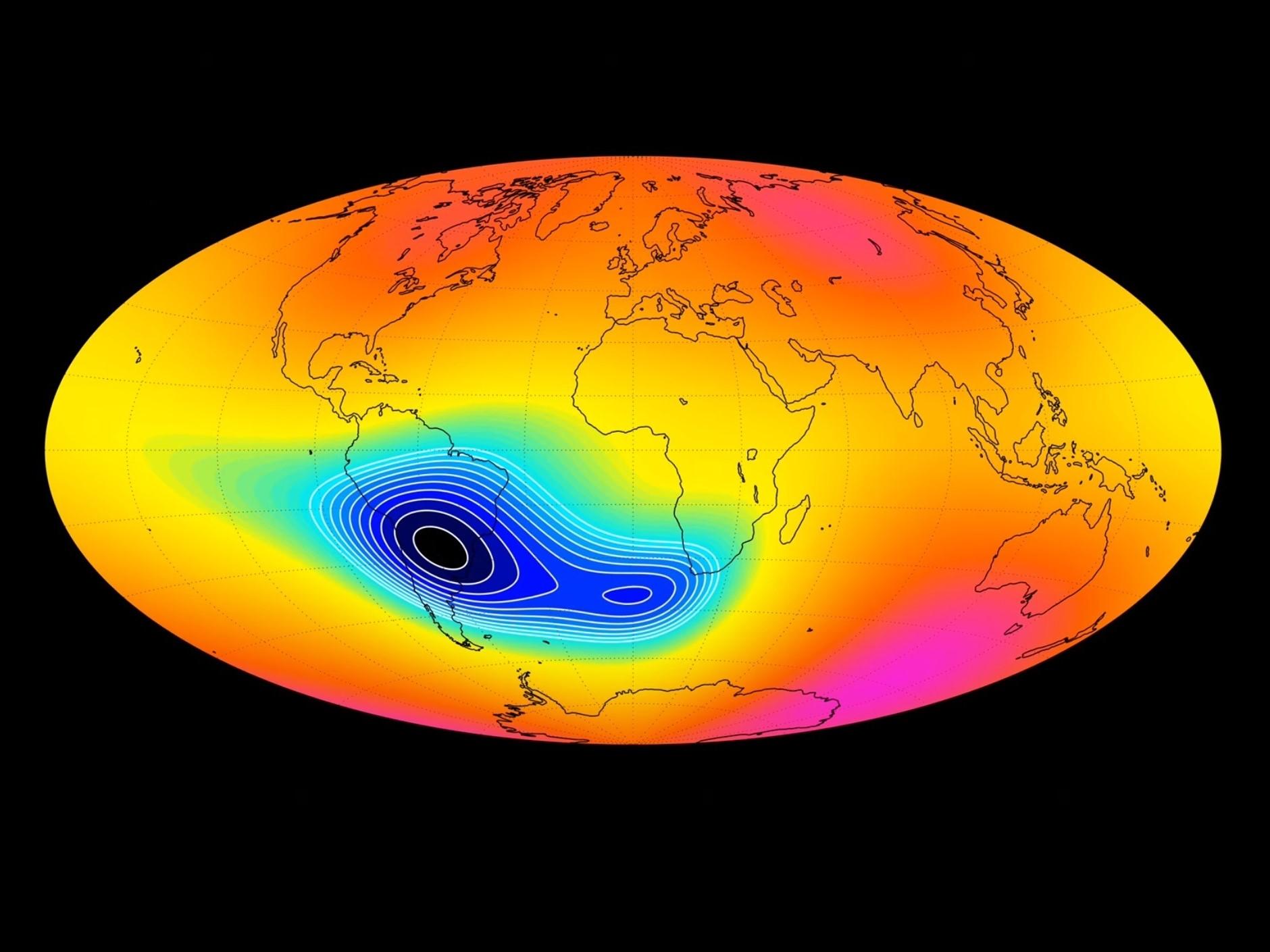Earth’s magnetic field is mysteriously weakening, causing satellites and spacecraft to malfunction
A localised region of weakness is 'developing vigorously', scientists warn
Your support helps us to tell the story
From reproductive rights to climate change to Big Tech, The Independent is on the ground when the story is developing. Whether it's investigating the financials of Elon Musk's pro-Trump PAC or producing our latest documentary, 'The A Word', which shines a light on the American women fighting for reproductive rights, we know how important it is to parse out the facts from the messaging.
At such a critical moment in US history, we need reporters on the ground. Your donation allows us to keep sending journalists to speak to both sides of the story.
The Independent is trusted by Americans across the entire political spectrum. And unlike many other quality news outlets, we choose not to lock Americans out of our reporting and analysis with paywalls. We believe quality journalism should be available to everyone, paid for by those who can afford it.
Your support makes all the difference.The Earth's magnetic field is weakening between Africa and South America, causing issues for satellites and space craft.
Scientists studying the phenomenon observed that an area known as the South Atlantic Anomaly has grown considerably in recent years, though the reason for it is not entirely clear.
Using data gathered by the European Space Agency's (ESA) Swarm constellation of satellites, researchers noted that the area of the anomaly dropped in strength by more than 8 per cent between 1970 and 2020.
"The new, eastern minimum of the South Atlantic Anomaly has appeared over the last decade and in recent years is developing vigorously," said Jürgen Matzka, from the German Research Centre for Geosciences.
"We are very lucky to have the Swarm satellites in orbit to investigate the development of the South Atlantic Anomaly. The challenge now is to understand the processes in Earth's core driving theses changes."
One possibility, according to the ESA, is that the weakening field is a sign that the Earth's magnetic field is about to reverse, whereby the North Pole and South Pole switch places.
The last time a "geomagnetic reversal" took place was 780,000 years ago, with some scientists claiming that the next one is long overdue. Typically, such events take place every 250,000 years.
The repercussions of such an event could be significant, as the Earth's magnetic field plays an important role in protecting the planet from solar winds and harmful cosmic radiation.
Telecommunication and satellite systems also rely on it to operate, suggesting that computers and mobile phones could experience difficulties.

The South Atlantic Anomaly is already causing issues with satellites orbiting Earth, the ESA warned, while spacecrafts flying in the area could also experience "technical malfunctions".
A 2018 study published in the scientific journal Proceedings of the National Academy of Sciences found that despite the weakening field, "Earth's magnetic field is probably not reversing".
The study also explained that the process is not an instantaneous one and could take tens of thousands of years to take place.
ESA said it would continue to monitor the weakening magnetic field with its constellation of Swarm satellites.
"The mystery of the origin of the South Atlantic Anomaly has yet to be solved," the space agency stated. "However, one thing is certain: magnetic field observations from Swarm are providing exciting new insights into the scarcely understood processes of Earth's interior."

Join our commenting forum
Join thought-provoking conversations, follow other Independent readers and see their replies
Comments